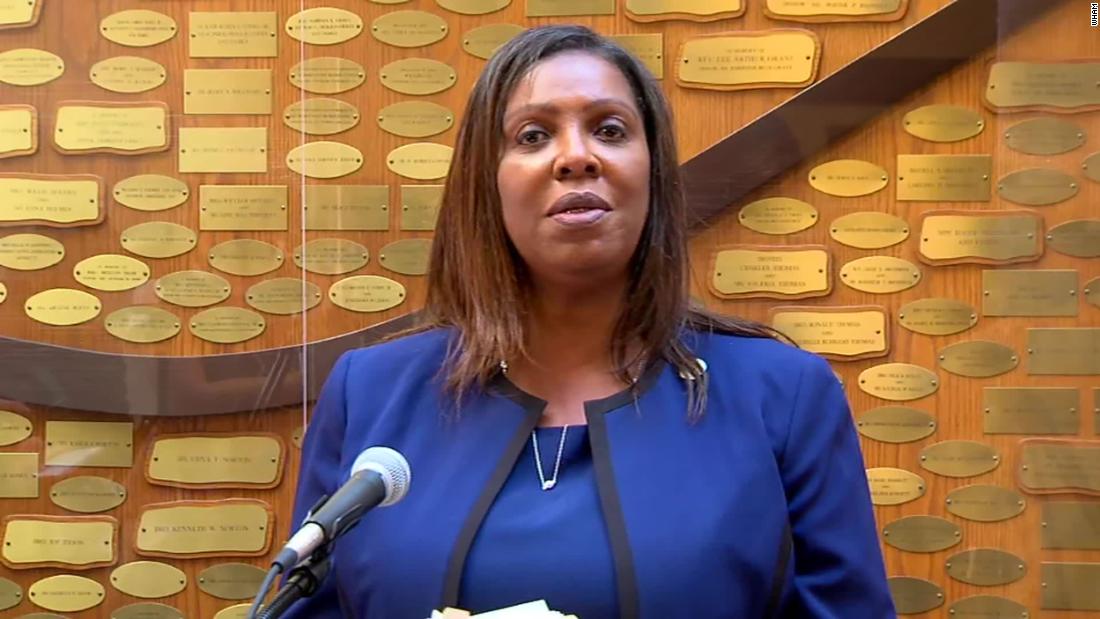
"Up until now the release of footage has been up to the discretion of local authorities, but this process has caused confusion, delays, and has hampered transparency in a system that should be as open and available to the public as quickly as possible, publicizing the footage, as soon as we have shown it to the deceased family," James said in a press conference Sunday.
James traveled to Rochester to make the announcement on what would've been Daniel Prude's 42nd birthday. She met with his family before the press conference and told reporters she promised them justice.
Prude was having a mental health episode on March 23 when his brother called Rochester police for help, according to his family. Prude's death and police body camera footage of the fatal encounter prompted protests in Rochester and accusations of a cover-up.
Last week, the city released 325 pages of internal emails, police reports and other documents that show a concerted effort by police and city officials to delay the release of incriminating body camera footage of Prude's encounter with police.
The documents included other examples of possible attempts by police and city officials to control the narrative around Prude's death in custody.
The attorney general announced earlier this month that she's empaneling a grand jury to investigate Prude's death.
James said that regardless of the grand jury investigation's outcome, her office will seek an order from the presiding judge to release the grand jury minutes to the public.
Under the new policy, which takes effect immediately, James says she will tell the public when her office opens an investigation into a police-involved death of an unarmed civilian. The public will see the body camera footage as soon as the family of the deceased victim sees it, she said.
James did say the timing of the video release will still be dependent on applicable security and privacy laws, and other privacy concerns.
Police departments typically agree with the fast release of raw body camera footage because it usually tells an entire unedited picture of the police interaction, said Betsy Brantner Smith, a retired police officer and spokeswoman for the National Police Association.
"From a national perspective, police departments aren't that unhappy about the release of body worn camera. There's always kind of a perception that's wrong, that police want to hide the body camera. And generally speaking, we want it out there as soon as possible," Smith told CNN. "In an officer-involved shooting, releasing a body worn camera is going to help show what really happened."
Smith was wary of the timing of the attorney general's move, cautioning against politicizing police work as the country experiences increasing tensions between police and the public in the wake of police custody deaths like Prude and George Floyd.
"The attorney general of any state is supposed to be the top law enforcement officer in that state, you know, obviously not law enforcement officers out on patrol, but they are the ones that their interest is supposed to be in the interest of the people and the crime victims, and that relationship with law enforcement, you know, boots on the ground law enforcement, needs to be a cooperative one," Smith told CNN. "Any police officer needs trust in their attorney general, and any state attorney general needs trust in their police. So, we have to make sure that those relationships don't get politicized."
CNN reached out to police unions in Rochester and New York City but has not heard back.
"general" - Google News
September 21, 2020 at 06:06AM
https://ift.tt/3cfcCxU
NY attorney general will decide when to release body camera video in police officer-involved civilian deaths - CNN
"general" - Google News
https://ift.tt/2YopsF9
https://ift.tt/3faOei7
Bagikan Berita Ini














0 Response to "NY attorney general will decide when to release body camera video in police officer-involved civilian deaths - CNN"
Post a Comment